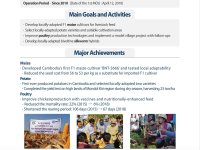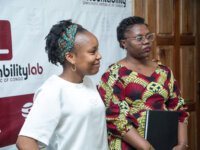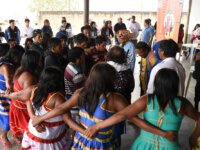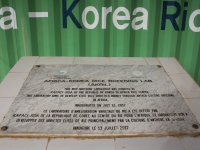The Accountability Incubator is a creative peer learning program for young civic activists and change-makers who want to fight corruption and build accountability. It was developed to provide long-term support, networks and skills to people who are often overlooked by or left out of traditional civil society programs. It is innovative in that it uses creative tools, a long-term approach and the very latest thinking to shape governance globally.
Innovation Tag: Development and Aid
When I began working as a judge in the town of Águas Formosas (in Minas Gerais, Brazil), I discovered that the region was inhabited by more than 2,000 Maxakali Indians, who lived in large villages and spoke another language. I researched their access to justice and realized that they suffered from many rights violations. With the support of the Court of Justice of Minas Gerais and the Regional Electoral Court, I created an innovation project to bring citizenship, democracy, and justice to the…
Case Study
Living Together Promoters – A new profile in behavioral sciences applied to public policy

The "Living Together Promoters" program began in early 2020 as an initiative of the Cordoba City Hall. It is considered innovative because it seeks to promote change management within the Administrative Misdemeanor Court by using diverse methods from behavioral and data sciences. Specifically, to provide evidence about the institutional status quo, and to assess the potential impacts of modifying social behaviors and norms inside of the institution.
Social assistance for low-income families in Singapore are often largely premised on their needs, rather than the enterprise and creativity that families have. Empowered Families Initiative is a developmental initiative that hopes to harness the strengths and abilities of low-income families and invest in their aspirations through grants, savings matching and group support to improve their life circumstances towards better socio-economic position and well-being.
Nationwide the unpaid care burden falls disproportionately on women, reaching alarming proportions in the city of Bogotá: 30% of the city's female population are full-time unpaid caregivers, of which 90% are low-income; 33% lack time for self-care; and 70% hold only primary school. To mitigate undesired effects, and that the burden of the home-care increases the vulnerability of (already) neglected women, the city of Bogotá has recently launched the "Care Block" initiative to centralize key…
Aviation is regulated in a vast set of laws and agreements, on an international and national level and is to be respected by aviators of all sizes; from big national airports, till little children playing with drones. All these different rules and moreover national differences lead to an incredibly complex system to implement. The Belgian Federal Public Service Mobility has developed a system that translates these legal requirements into a single online aircraft registration platform.
The Commonwealth’s Climate Finance Access Hub supports small and vulnerable states to access sources of climate finance to meet their priority adaptation and mitigation needs and realise their sustainable development goals. The Hub helps countries to develop transformative projects required to access funds and support institutional capacity to deliver on climate finance.
Case Study
KOPIA – Customized cross-border farming technologies to address poverty and rural challenges

KOPIA (Korea Program for International Cooperation in Agricultural Technology) is an innovative development cooperation platform that facilitates agricultural partnerships among partners and donors, where agricultural technologies can be efficiently scaled up and effectively commercialized. KOPIA consists of three pillars: to develop locally-customized farming technologies; to carry out pilot projects to demonstrate practical effectiveness; and to involve other donors for scaling up.
KAFACI and AfricaRice jointly developed the Africa Rice Development Partnership project to increase rice productivity in Africa. Using modern breeding technology that shortens the breeding period from 10-15 years to 3-5 years, and by crossing Korean Japonica rice with African varieties, five high-yielding varieties were developed and registered in three countries. The newly released varieties directly benefited farmers, consumers, retailers and policy-makers due to their high yield and quality.
Case Study
ASEAN Food Security Information System (AFSIS): Innovation for Agricultural Data Management &…
The Government of the Republic of Korea has implemented an ICT-based agricultural data management system through digitalization and a human capacity building program, which allows innovative data collection, analysis, and sharing in 6 ASEAN member countries. Through this, the governments have improved the paperless work process on agricultural statistics, accumulating the data and human resources for enhancing food security in the ASEAN region.





